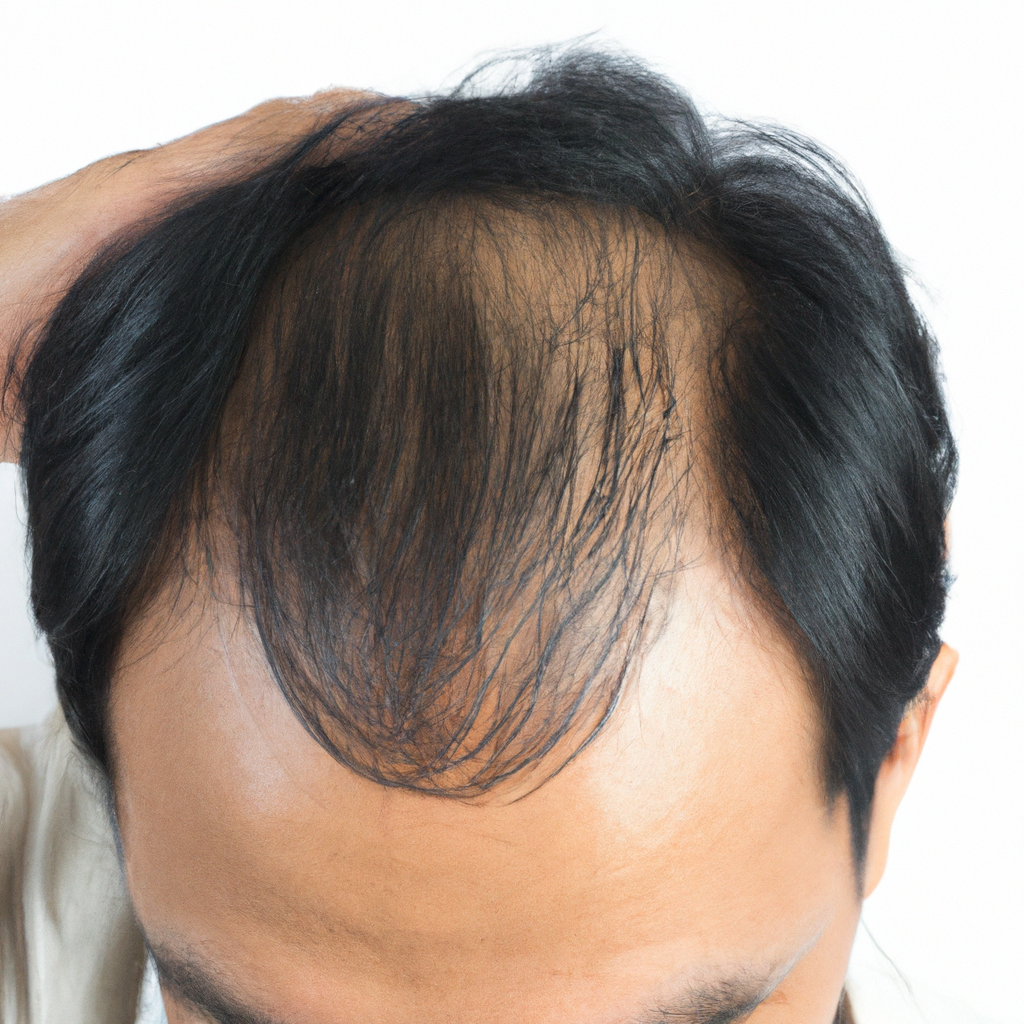Hair loss is a common concern among men, and it can be a source of self-consciousness and distress. While some degree of hair loss is natural as men age, there are effective treatment options available to combat it. In this article, we’ll explore the causes of hair loss in men and discuss various treatment options, both conventional and natural, to help you make an informed decision about managing your hair loss.

Understanding Hair Loss in Men
Before delving into treatment options, it’s essential to understand the underlying factors that contribute to hair loss in men. Hair loss, medically known as alopecia, can result from various causes, including genetics, hormones, and lifestyle choices.
Common Causes of Hair Loss
Genetic Factors
Genetic predisposition plays a significant role in male pattern baldness, the most common type of hair loss in men. This condition, also known as androgenetic alopecia, is inherited and can lead to thinning hair or a receding hairline.
Hormonal Imbalance
Hormonal imbalances, such as an excess of dihydrotestosterone (DHT), can contribute to hair loss. DHT is a hormone that can shrink hair follicles, making it difficult for new hair to grow.
Lifestyle and Diet
Unhealthy lifestyle choices, like smoking, excessive alcohol consumption, and a poor diet lacking essential nutrients, can weaken hair follicles and lead to hair loss. Managing these factors can help prevent further hair loss.
Hair Loss Treatment Options
Over-the-Counter Solutions
Over-the-counter (OTC) products like minoxidil (Rogaine) are readily available and can promote hair growth by increasing blood flow to the scalp. These products are easy to use and can be a convenient first step in treating hair loss.
Prescription Medications
Prescription medications like finasteride (Propecia) work by reducing DHT levels, which can slow down or even reverse hair loss treatment for men in some men. However, these medications may have side effects, so consultation with a healthcare provider is essential.
Hair Restoration Procedures
For those seeking more drastic results, hair restoration procedures like hair transplantation can be effective. During these surgeries, hair follicles from one part of the body are transplanted to areas with thinning or no hair, providing a long-lasting solution.
Natural Remedies and Lifestyle Changes
Diet and Nutrition
A balanced diet rich in vitamins, minerals, and proteins is crucial for healthy hair growth. Incorporating foods like leafy greens, lean proteins, and biotin-rich foods can help strengthen hair follicles.
Stress Management
Chronic stress can contribute to hair loss. Practicing stress-reduction techniques like meditation, yoga, or deep breathing exercises can help maintain healthy hair.
Hair Care Practices
Gentle hair care practices, such as avoiding excessive heat styling and tight hairstyles, can minimize hair damage and prevent further loss.
Choosing the Right Treatment
Selecting the right treatment for hair loss depends on various factors, including the cause of your hair loss, your age, and your personal preferences. It’s crucial to consult with a healthcare professional or a dermatologist who can assess your specific situation and recommend the most suitable treatment plan.
Conclusion
Hair loss can be a distressing experience for men, but there are effective treatment options available. Whether you opt for OTC solutions, prescription medications, natural remedies, or hair restoration procedures, taking action early can make a significant difference in preserving and regrowing your hair. Remember to consult with a healthcare provider to determine the best approach for your unique needs and preferences.